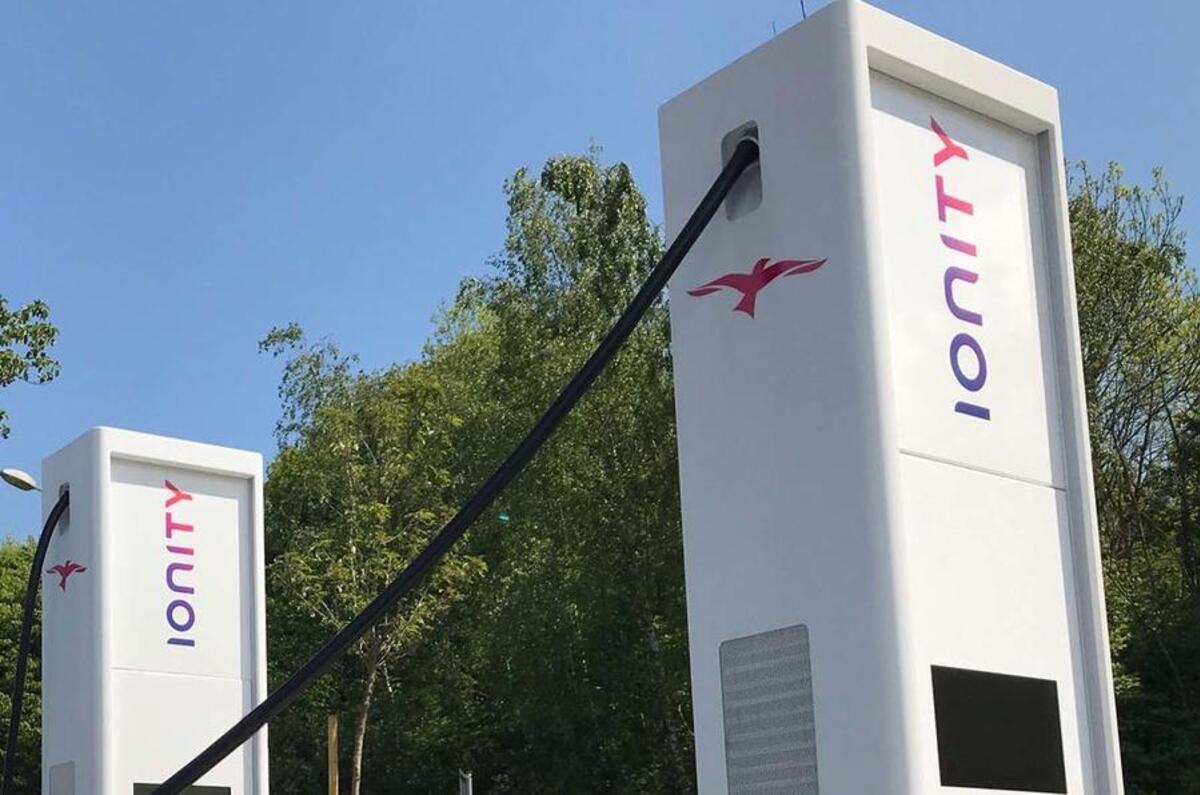Ionity will introduce a new, kWh-based pricing structure at the end of the month across its 200-strong network of electric vehicle (EV) rapid chargers.
The company, formed as part of a joint venture between BMW, Mercedes-Benz, Ford and the Volkswagen Group, currently operates a ‘pay per vend’ system with a flat fee of £8 per charging session in the UK. As of 31 January, the new system, for customers without contracts, means they will pay €0.79 (69p) per kWh.
Speaking to Autocar, Ionity CEO Michael Hajesch said the new system is “good for the customer, meaning they pay for exactly what they are served with. It’s not mixed with any other details or terms, it’s just easy, transparent good sense”.
All UK charging networks have been given guidance under the Alternative Fuels Infrastructure Regulations 2017 to offer such a pricing scheme for non-contract users, but Ionity is among the first the adopt the change.
The system is designed for customers who don't use Ionity’s largely motorway-based network regularly, rather than those who have one of the many Connected Mobility Service Provider (MSP) contracts, such as BMW’s ChargeNow and Volkswagen’s WeCharge.
Ionity, at two years old and with about 60 staff, currently operates 200 charging stations with more than 860 charging points across 20 European countries, including the UK. Hajesch claims the company intends to have around 40 stations live in the UK by the end of 2020, with 400 Europe-wide. The next site to open in the UK will be at the Skelton Lake Extra motorway services near Leeds.
Hajesch is keen to point out that the fastest Ionity stations, running 350kW chargers, are “not 350 per site but 350 per charging outlet, so all vehicles get served the same rate at the same time”.
He also cites the UK as “one of the most significant markets in Europe for the brand”, regardless of the outcome of Brexit, “considering vehicle registrations and the history of manufacturing and production in the UK”.
As the UK’s decision to leave the European Union unfolds, Hajesch claims the agility and size of Ionity means it's “watching, listening and evaluating to see if we have to react in some way. If we can just continue as is, even better”.
Read more:
Ionity to expand EV fast charger network at Extra motorway services
Analysis: who will charge our electric vehicles?
On a charge: driving the Jaguar I-Pace from London to Frankfurt




Join the debate
Add your comment
Lol!
Lol!
Are they on a mission to make Teslas even more attractive?
24 pence is what the Tesla superchargers charge.
Ionity are going to lose a lot of potential customers
Morons
Over chargers!
Whilst you could expect to pay a premium for the occasional use of a rapid charger. It does appear that Ionity are asking an excessive amount. Perhaps they will review the rates, if people do avoid using them?
1,800 miles completed in my new EV and so far, I have not had to use a single public charger.
Well said Harry
Love real world examples, there's a forumn in states for Bolt users and some of the owners have never used a Roadside charger in over a year!
69p a Kw
This is the exact reason why a 1,000,000 roadside charges AREN'T needed. People would hardly ever use them, first they'd use the 200 miles from their home night charger at 9p a Kw then in an emergency, and only then, would they use these to top up so as to complete the journey.
Afterall who'd pay the equivalent of £41 a Gallon?